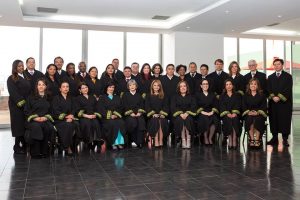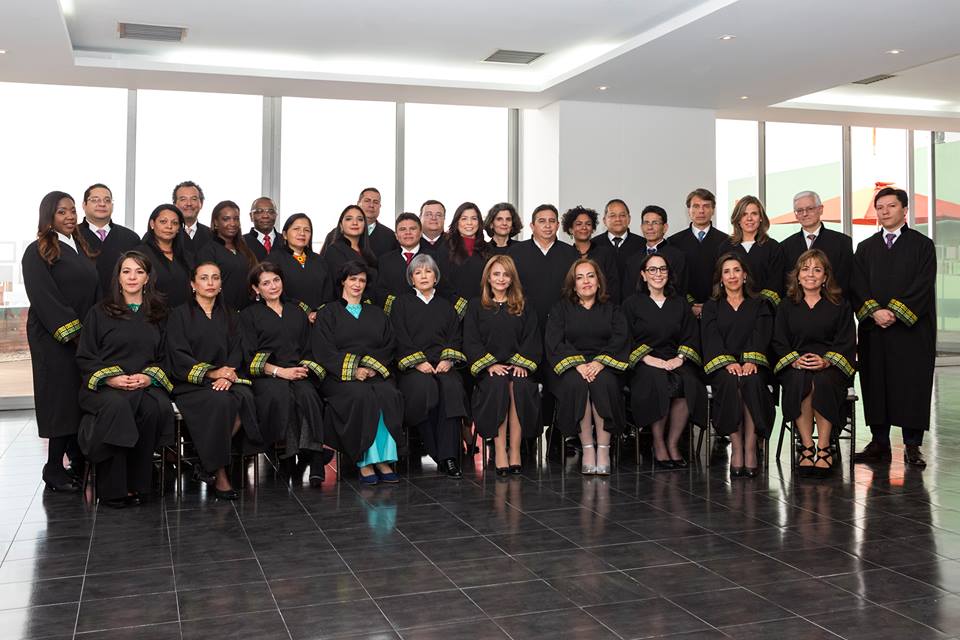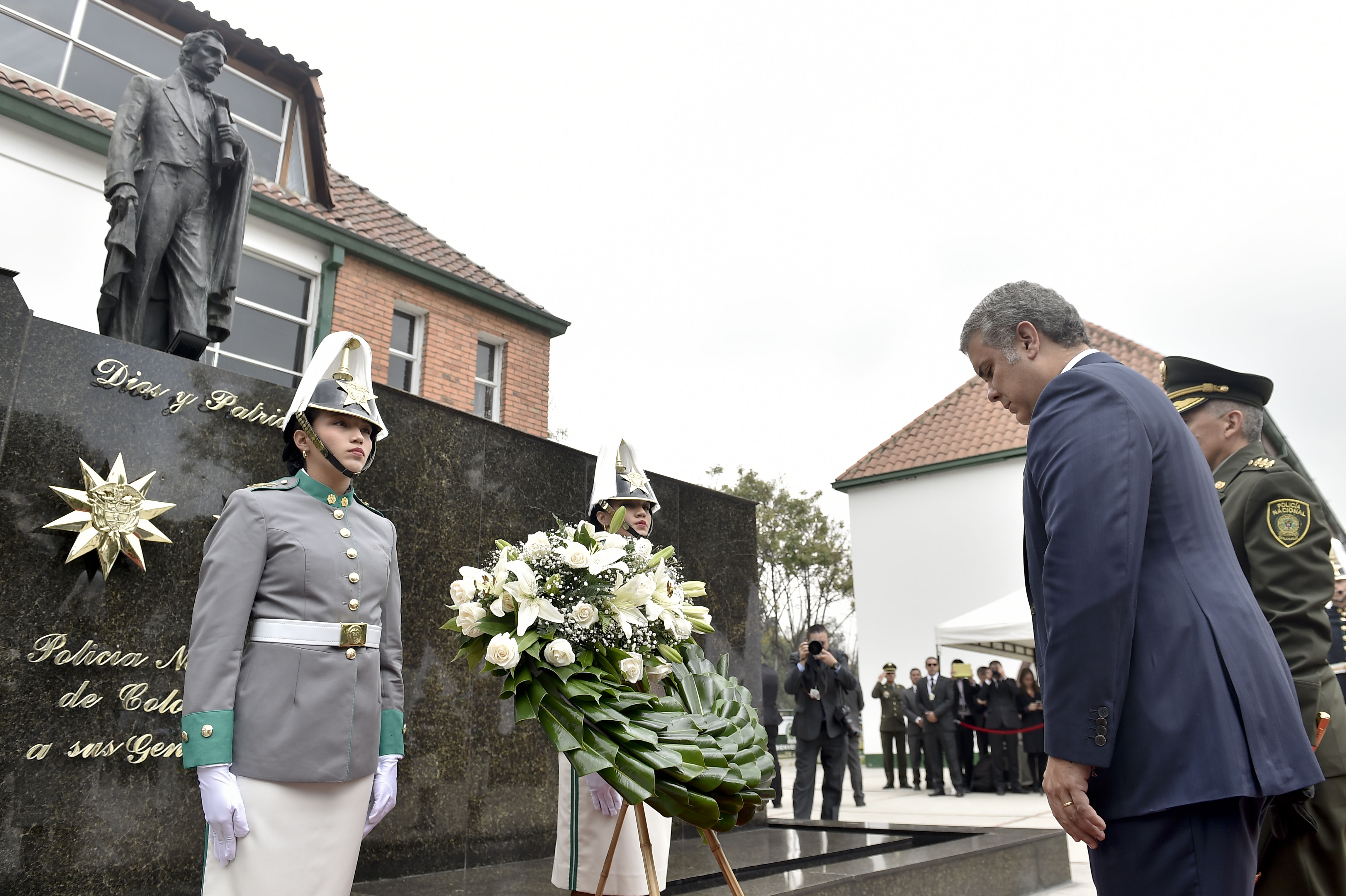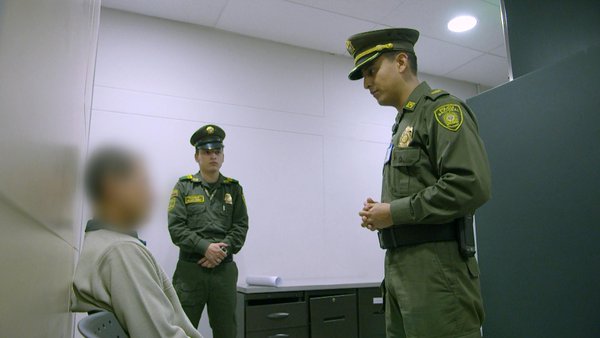
Magistrates of the Jurisdicción Especial para la Paz . Photo courtesy of JEP.
Seven months following its inception, the Tribunal established to rule over crimes committed during Colombia’s longstanding-conflict with the FARC has been given a judicial boost courtesy of the Colombian Constitutional Court. The country’s highest court on constitutional matters ruled on Saturday in support of Colombia’s Jurisdicción Especial para la Paz (known by its short form ‘JEP’) and now has the court’s backing in continuing its function to preside over crimes committed by either government or FARC members during the armed conflict.
The Constitutional Court ruled that the JEP’s founding documents (known in Spanish as ley estatutaria) was constitutional and that the newer court could now proceed with its schedule.
Following the ruling, JEP President Patricia Linares commented to Blu Radio Colombia that the “[h]aving a normative framework gives peace of mind to the [JEP], to the victims, to Colombian society and to the international community.”
The Constitutional Court was also quick to stress that the JEP’s powers do not equate with granting impunity to wrongdoers, as the political dialogue has often mischaracterised the consequences of arming the JEP with wider judicial powers.
In addition to the wider ruling of JEP’s function, the Constitutional Court also ruled on a number of specific provisions that will indicate just how expansive the JEP could become in relation to crimes committed during Colombia’s five-decade conflict,
Sexual crimes against minors
The Constitutional Court’s boldest pronouncement came in stating that the JEP could in fact try serious sexual crimes against minors and they would not have to be separately tried under the ordinary penal code as some members of Congress had asked for. Congresswoman Maritza Martínez of El Partido de la U had most strongly advocated that the crimes be tried in the ordinary criminal courts rather than the JEP, citing the overwhelming number of abuses that occurred during the conflict: 48,915 in the years spanning 2008-2012 alone.
Although respecting the independence of the judiciary, President Duque spoke of his strong opposition that crimes of such severity be permitted alternative remedies before the JEP. According to the President, the law should not “mitigate, differentiate, or give different processes to crimes as serious as rape and the abuse of children.”
The Constitutional Court on the other hand disagreed, holding that a proposed rule by Congress was not within its competence and went against the JEP’s guiding principles of truth, justice, reparation and non-repetition. “The victims will always be consulted in the processes.” JEP President Linares guaranteed in an interview to Blue Radio Colombia, “The JEP must also guarantee an alternative room so that the victim is close and not face to face to the victimizer, if she so decides “
https://thebogotapost.com/2018/08/11/victims-of-soacha-false-positive-killings-meet-their-accused-in-jep-hearing/
Should the military be treated differently?
The Constitutional Court did not agree with congressional requests that the military should be offered a parallel structure by which to be judged. Given the fact that the JEP was founded to try both sides of the armed conflict, they supported equal treatment under the court’s defining laws.
The disqualification of judges
Congress had initially sought a rule barring members from standing as judges on the JEP if they had previously been a judge in a matter relating to the armed conflict, or acted against the State in a legal capacity on behalf of either individuals of human rights organisations. This proposed rule would have discounted the large majority of judges and the Constitutional Court ruled in JEP’s favour on this provision as well.
Extradition
One of the thornier issues that has been raised since the peace accord and the establishment of the JEP has been over the extradition of former FARC combatants that have been accused of narcotrafficking since the peace agreement was signed. The case of Jesús Santrich is one such publicised example and the Constitutional Court did not budge from that earlier decision. This would suggest that there remains a prohibition on extradition of individuals if their illicit activities predated the peace agreement but the possibility of extradition remains for those who had committed them after the deal (December 2016). In these latter cases, the power of extradition remains with the Supreme Court and the national government though, crucially, the JEP would retain its powers to look into the evidence as to when the wrongdoing occurred.
The JEP is now shaping up to be a powerful force to establish peace in post-conflict Colombia and, in getting the backing of the Constitutional Court–a body only as old as 1991 when the Colombian constitution was refashioned–it has a crucial ally against its detractors.






